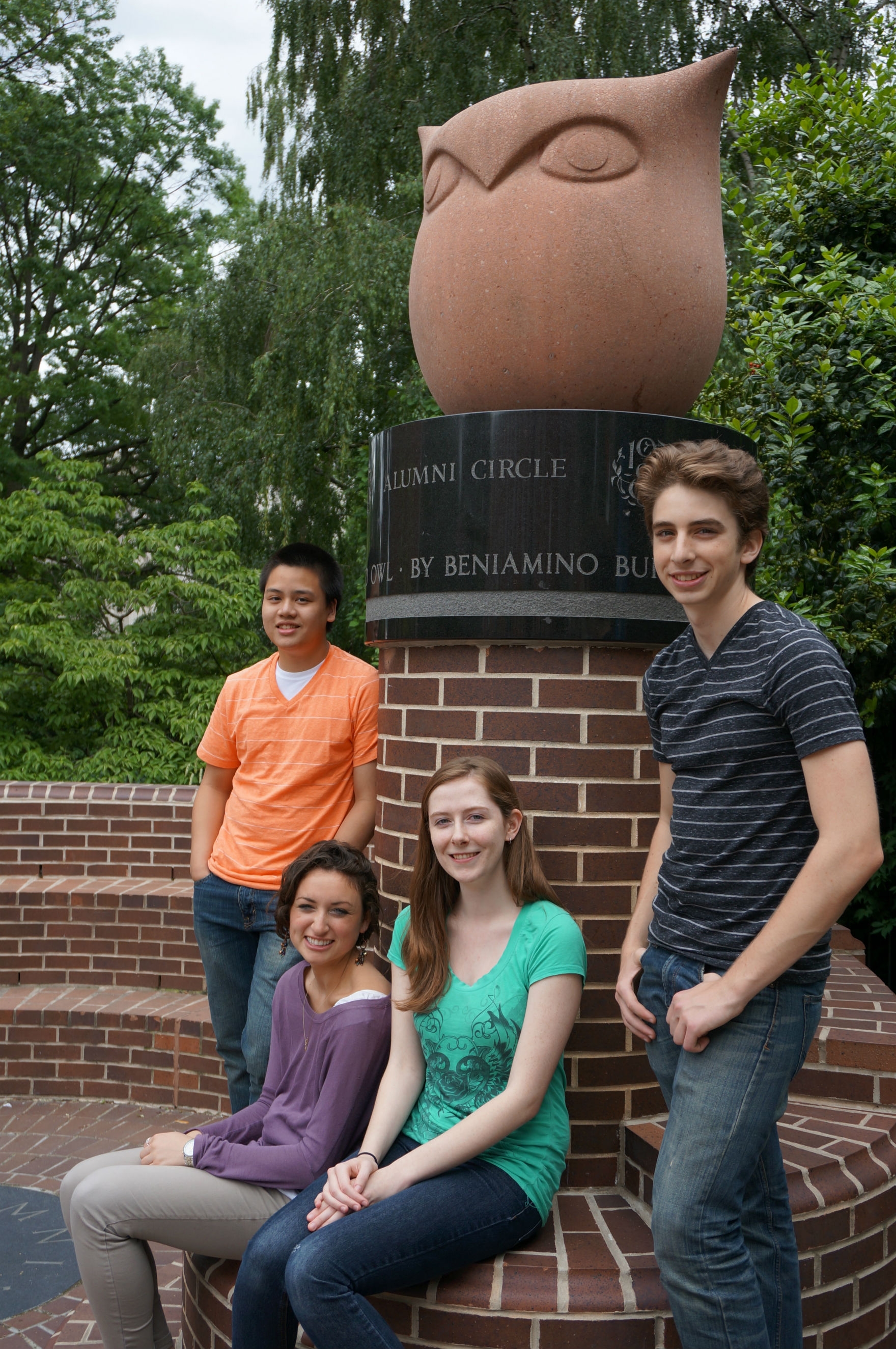Science Scholars Program supports promising young researchers
When you’re a student researcher working on mathematically modeling traffic flow, it just makes sense you would have a breakthrough while riding the bus.
“My very first week of research was one of the hardest things I've ever done,” said sophomore Louis Graup, who was working with assistant professor of mathematics Benjamin Seibold, known for his work with phantom traffic jams, those traffic tie ups which occur without any actual highway obstructions.
“I was questioning why I was even doing research. But that day I had a breakthrough and was finally able to do something that made sense. It didn't get much easier from there, but that moment turned things around for me and motivated me to keep going.”
It’s that motivation that the Science Scholars Program (SSP), an initiative of the College of Science and Technology (CST), works to foster. Designed for high-achieving students, science scholars have access to freshman-year research opportunities, personal and professional development programs, and opportunities to participate in international research experiences.
“The goal of SSP is to identify exceptionally prepared, academically strong, incoming freshman who have a passion in science and technology and provide them with opportunities to begin advanced research experiences in their first year,” said Rose McGinnis, director of Student Professional Development and Undergraduate Research Program at CST. The program is highly competitive with an academically challenging selection process that includes a formal application and a full review by the Science Scholars Faculty Committee.
Graup, an applied mathematics major, was among the first group of five CST students named Science Scholars in the spring 2013 semester. All of the students had both math and verbal SAT scores above 700, exceptional high school transcripts with many advanced placement credits, and had completed a rigorous fall course load with a GPA of 3.5 or better.
Biology major Katie Steinberg was also part of that first cohort. She’s been working with biology professor Allen Nicholson on early disease detection and nano-medicine through the use of atomic force microscopy, which collects images of a surface by moving a probe over a sample in a specific pattern. “Coming into Temple, I wanted only to go to medical school and then be a physician,” said Steinberg, “but being in the Science Scholars Program has allowed me to open new doors.”
Each Science Scholar receives $4,000 in summer funding for three years to complete research projects within the college, at Temple or at another institution. Their first summer research project, however, must be completed with a CST faculty member. Other benefits include special seminars, workshops, conferences and colloquia; access to faculty, graduate student and professional mentors; and preparation for awards, scholarships and external research opportunities.
“We want to help students qualify for prestigious scholarships —including Rhodes, Marshall and Goldwater— and have more accepted into prestigious graduate programs,” said McGinnis.
For the 2014 academic year CST selected 11 new Science Scholars, including Shelby Guercio and Azam Husain. “SSP will allow me to continue my passion for research and develop ways to coalesce that with my other career interests,” said Husain, a neuroscience major planning on a career as both a physician and researcher.
“I wish to bridge the chasm between the research and clinical worlds,” said Shelby, a freshman from Long Island, New York. “Right now, I'm the only Science Scholar who is a geology major. It's something that my mom brags about.”
